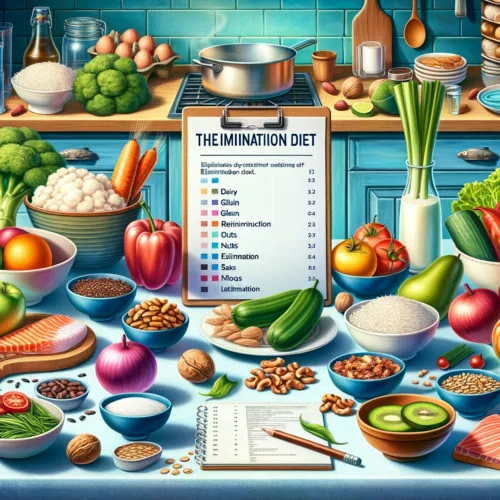Nutriciology is a multifaceted scientific discipline concerned with the study of nutrition and its impact on human health. This science seeks to understand how food affects the way the body functions, as well as what foods and diets can help maintain a healthy lifestyle. Nutritionists, experts in this field, study the body’s biochemical processes, metabolism, and the effects of nutrients on the prevention and treatment of various diseases.
The main goal of nutritional science is to help people eat right in order to maintain optimal health and prevent various nutrition-related diseases. Nutriciologists help people by developing personalized meal plans keeping in mind their goals, preferences and body characteristics. Thus, nutriciology plays an important role in our pursuit of a healthy lifestyle through a better understanding of the nutritional aspects of our food and their impact on our well-being.
Why go to a nutritionist?

First, let’s look at why you may need the help of a nutritionist. In a world where nutritional information is abundant, it becomes difficult to separate facts from myths. A nutriciologist is a professional who specializes in the science of nutrition and its impact on health. By contacting one, you can receive personalized guidance, a balanced nutrition plan, and a wealth of helpful tips to help you reach your health and weight goals.
A breakdown of today’s nutritional problems
Today’s world is full of temptations and threats to healthy eating. We are faced with an excess of processed foods, sugar and salt in our diets, and the temptation of fast food. A nutritionist can help you understand this problem, explain how to avoid food traps and make informed decisions about your diet.
Assessment of health status and goals
When you see a nutritionist, there is not only an analysis of your current diet, but also an assessment of your overall health and your goals. This includes measuring parameters such as weight, height, activity level and analyzing your medical history. Based on this data, the nutritionist will be able to develop a personalized nutrition plan that will meet your needs and help you achieve your desired results.
Expert tips for healthy eating

As a nutritional professional, I would like to share with you a few important tips for maintaining a healthy diet. The first and most important is to develop a personalized diet that is tailored to your needs and preferences. Remember, there is no one-size-fits-all diet that fits everyone. Your diet must be unique to meet your goals and your body’s requirements.
Development of an individualized diet
So, how do you develop a customized diet? It’s important to start by defining your goals. Do you want to lose weight, improve your skin or increase your energy levels? Then, analyze your eating habits. Write down what you eat and when. At this stage, a nutritionist can help you identify potential problems and determine which foods are worth including or excluding from your diet.
Balance of macro- and micronutrients
To achieve optimal health, you need to pay attention to the balance of macronutrients and micronutrients in your diet. Macronutrients such as proteins, carbohydrates and fats provide energy and building materials for the body. Micronutrients, such as vitamins and minerals, play an important role in biochemical processes. It is advised to include a variety of foods to ensure a balanced intake of all essential elements.
Portion and meal time management
Another important aspect is portion control and meal timing. Do not overeat or skip meals. Divide your diet into small meals that satisfy your hunger. This will help keep your blood sugar levels stable and avoid overeating.
The importance of hydration
Don’t forget about hydration. Water plays a key role in many physiological processes and keeps your skin, digestive system and many other organs healthy. Make sure you are drinking adequate amounts of water throughout the day. I advise you to keep track of your fluid needs, especially when you are active or in hot weather.
Consultation and monitoring process

The consultation process with a nutritionist is an important step in your journey to healthy eating. During the first meeting, we analyze your biometrics and medical history to better understand your current health and eating habits. This allows us to create a personalized nutrition plan that is tailored to your needs and goals. Feel free to share all relevant information and ask questions at this stage – the more we know about you, the more effective our collaboration will be.
Analysis of biometric data and anamnesis
An important part of the consultation is to analyze your biometrics and medical history. This includes measuring your weight, height, body fat percentage and other physical parameters. We also discuss your medical history, chronic conditions, allergies, and medications you are taking. This allows me to better understand what aspects of your health may be affecting your nutrition.
Developing and adjusting a nutrition plan
Based on the information gathered, I develop a customized nutrition plan for you. This plan will take into account your goals, preferences and limitations. However, the nutrition plan is not static. Over the course of our relationship, we will regularly evaluate its effectiveness and make adjustments if necessary. This will ensure that your goals are achieved gradually and sustainably.
Evaluation of results and next steps
Once the diet plan has been implemented, we will evaluate its results. Monitoring your progress helps determine what aspects of the diet are working best for you and where changes may be needed. Together, we will discuss next steps and an action plan to achieve your long-term healthy eating goals. Remember, a nutritionist is your partner in achieving a healthy lifestyle and we are here to support you every step of the way.
Support and resources for healthy eating

As a healthy eating professional, I’d like to share with you a few helpful resources and tips to help you maintain a healthy diet. Let’s start with recipes and menus for healthy meals that will help you diversify your diet and enjoy healthy foods. In addition, I’ll cover how to choose and buy foods to fit your needs. Finally, we will discuss popular diets and their effectiveness so you can choose the best path to a healthy lifestyle.
Recipes and menus for healthy meals
Eating healthy doesn’t mean you have to give up delicious meals. Instead, let’s create a varied menu of seasonal foods. You should experiment with different types of vegetables, protein sources, and healthy carbohydrates. Remember that balance is important, and include all the macro and micronutrients you need in your diet. I will also provide you with some tried and tested recipes to help you prepare delicious and healthy meals.
Grocery shopping tips
Choosing the right foods is the key to a healthy diet. When buying food, pay attention to its quality, freshness and origin. To make informed decisions in the store, read labels and study nutritional information. Optimally choose natural and organic products whenever possible, and try to avoid foods with excessive sugar, salt and artificial additives.
An overview of popular diets and their effectiveness
There are many different diet approaches and choosing the one that is right for you can be difficult. I will give you an overview of popular diets and explain their basic principles and effectiveness. However, remember that there is no one-size-fits-all diet, and what works for one person may not work for another. It is important to choose an eating path that fits your goals and preferences, and to coordinate with a professional to ensure your body is getting everything it needs to be healthy.
Take care of your health

One of the most important tips that I want to give you is to look after your health. This means that you should take care of your body and nutrition on a regular basis. Regular consultations with a nutritionist is a key component of this care. A nutritionist will help you develop a customized nutrition plan that fits your needs and goals.
Regular consultations with a nutritionist
Regular consultations with a nutritionist are not just a commitment to your health, but also a valuable source of information and motivation. Meeting with a nutritionist will help you monitor your eating habits, assess your progress and adjust your diet to meet your current needs. A nutriciologist will also be able to answer your questions, provide advice and guidance to keep you on track toward a healthy lifestyle.
Adherence to a healthy lifestyle
Following a healthy lifestyle is an essential part of taking care of your health. This includes proper nutrition, moderate physical activity, adequate sleep and stress management. A nutritionist can help you develop a plan that fits into your daily life and promotes your physical and emotional well-being. Remember, taking care of your health is an investment in your future, and every step toward a healthy lifestyle brings you closer to better well-being and quality of life.















